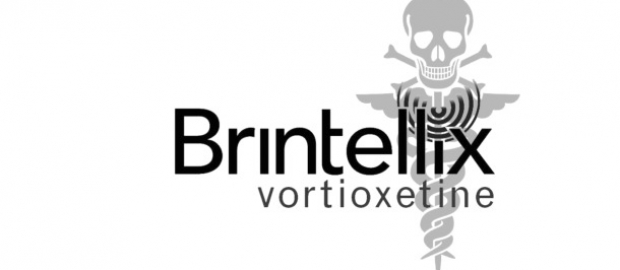Conventional Med
New Drug Increases HDL, Decreases LDL, But What About Heart Disease?

Pride of Medical Science, by talented homeopath & artist Gina Tyler, http:ginatyler.com. All rights reserved to Gina Tyler.
A new study shows that so-called “good” cholesterol, HDL, is increased, and so-called “bad” cholesterol, LDL, is decreased by a new, as yet unreleased drug, evacetrapib. To be published this week in theJournal of the American Medical Association (JAMA), the study demonstrates that HDL can be more than doubled compared with placebo and LDL decreases up to one-third.
That does, of course sound good. Having higher HDL levels and lower LDL levels are good for us, right?
Not necessarily. The error comes in mistaking markers of cardiovascular health with actual health. It is true that cholesterol levels are markers for cardiovascular health, but they are only part of the story. Most significantly in regard to this study, it has never been shown that artificially raising or lowering cholesterol benefits heart health or improves survival.
Like so many others, this study is focused on the wrong thing. Raising and lowering cholesterol with drugs is not health-producing. That only masks the real issues exposed by high and low cholesterol levels.
JAMA Study
The study, titled “Effects of the CETP Inhibitor Evacetrapib Administered as Monotherapy or in Combination With Statins on HDL and LDL Cholesterol“, was both double-blind and placebo-controlled. The 398 subjects were people with low HDL or high LDL cholesterol levels, but who were also considered to be at low risk of developing heart disease within ten years.
Rhetorical Question: Why would people with little risk for developing heart disease be given a pharmaceutical drug?
The study’s purpose was to see if HDL levels would increase, and LDL and triglyceride levels would decrease. They did, and to a significant degree.
HDL is defined as “good” cholesterol, so higher numbers are considered better. LDL is defined as “bad” cholesterol, so lower levels are considered better. Triglycerides are considered very bad cholesterol, so lower levels are supposed to be better. Here are the results in tabular form:
| Blood Element Measured |
Placebo | 30 mg/dL |
100 mg/dL |
500 mg/dL |
| LDL | 153.3 | 124.4 | 114.8 | 87.4 |
| Change | 7.2 | -20.5 | -31.7 | -51.4 |
| Percent Change | 3.9 | -13.6 | -22.3 | -35.9 |
| HDL | 51.6 | 87.1 | 108.6 | 126.1 |
| Change | -0.7 | 30.0 | 50.9 | 66.0 |
| Percent Change | -3.0 | 53.6 | 94.6 | 128.8 |
| Triglycerides | 121.3 | 106.3 | 113.4 | 94.8 |
| Change | -0.5 | -13.2 | -9.8 | -26.7 |
| Percent Change | 9.3 | -3.1 | -3.1 | -10.8 |
Clearly, this evacetrapib trial was a brilliant success, with HDL increased as much as 126.1% – more than doubling, LDL decreased as much as 51.4%, and triglycerides decreased by more than a quarter. What’s not to like?
If it were true that forcing levels of these cholesterol elements to change resulted in a genuine change in health, it would be impressive. However, it has never been shown that forcing cholesterol levels to change will result in improved cardiovascular health. Only changes that have resulted from genuine improvements in health—as evidenced by weight loss or increased exercise—have been demonstrated to have any significant effect on health outcomes, such as measures of heart attack numbers or, even more significant, mortality.
Big Pharma’s Redirection Away from What Actually Matters
The first question that needs to be asked is, why did the study focus on healthy people? What’s the point? If the subjects’ anticipated risk of heart attack in the next ten years is only 10% or less, and at most 20%, this study did not focus on those people who would normally be considered at significant cardiovascular risk.
It’s not surprising that the study focuses on these issues, since raising HDL and lowering LDL is what the drug is designed to do—and you can be sure that these results will be hyped to high heaven. However, people who are interested in their health should take such research with a big lump of salt.
What matters is whether a drug can benefit people who already have heart disease, not whether arbitrary markers can be forced to change in healthy people. Benefits must be measured in terms that matter, such as whether they extend life and help maintain it with good quality. By those measures, nearly all heart drugs fail nearly everyone to whom they’re given.
This is yet another example of how Big Pharma redirects attention away from what truly matters: whether people’s lives are improved and mortality decreased.
Most trials of heart drugs—and cancer drugs and pharmaceuticals for many other diseases—niftily side-step what matters, instead focusing on markers that can be forced to change through medication. Whether that results in improved health…Well, the longer they can avoid addressing that topic in an honest study, the longer they can profit from their drugs.
Health does not come from pills! This is the bottom line. Health is provided by good food, clean unpolluted environment, clear water, good sanitation, and a healthy dollop of exercise and pleasure.
Postscript:
It should be noted that the manufacturer of evacetrapib is Eli Lilly, which funded the study and also “participated actively in designing the study, developing the protocol, and provided logistical support during the trial.”
Tagged big pharma, conventional medicine, evacetrapib, heart disease. cardiovascular disease, jama, journal of the american medical association, modern medicine, pharmaceutical drugs, pharmaceuticals














Pingback: Tiz a Good Question | Just ME in T's Health Stuff
Pingback: Taking Two Heart Drugs Triples Risk of Hospitalization from Falls in Adults Aged 25-59 | Gaia Health
Pingback: Taking Two Heart Drugs Triples Risk of Hospitalization from Falls in Adults Aged 25-59 | Next Level Nutrition
Pingback: Europe Approves Stevia | HealthReform.CA
Pingback: Stents, Statins, Blood-Thinners and GMO Implants, Oh My! « MyQute Health & Personal Views